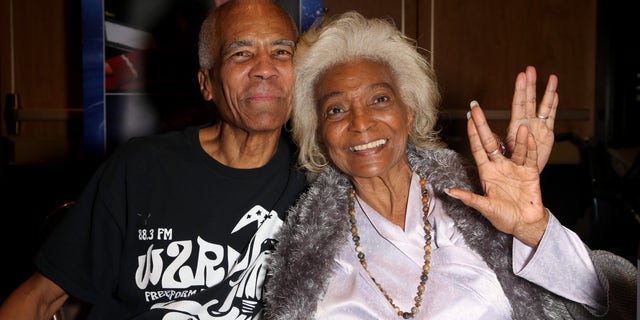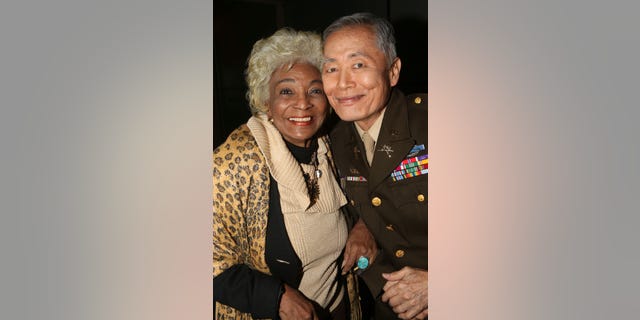A system designed to protect people with disabilities failed one young man at every single level.
Author: Andie Judson
LANCASTER, Calif — Editor's note: This story contains graphic and disturbing images. We made the decision to show these photos in an effort to illustrate how broken the system is and the impact it has on people with disabilities. We hope our state leaders will see this investigation, and will step in and help reform conservatorship system.
“Throughout your career, you have some cases you never forget,” said Krist Mason. “This is one for me. This is a call I’ll never forget..."
Mason is now an investigator with the Los Angeles District Attorney, but in 2012 she was a deputy assigned to patrol for the Los Angeles County Sheriff’s Department.
She and her partner were dispatched to do a welfare check after the L.A. Sheriff’s Department received disturbing photos of Michael Parisio Jr., known as Mickey.
“In some of the photos he was handcuffed,” recalled Mason. “And (in) some of the photos it appeared he was just in the backyard unsupervised in a manner where it wasn’t normal.”
Mickey was a disabled 36-year-old man under a limited conservatorship of his parents.
“We went into the bedroom where Mikey was and that’s where it all started,” said Mason.
She recalled the room being hot and the curtains shut.
“So, no one could see in and he couldn’t see out,” said Mason. “He was wearing boxers. Nothing else.”
As they tried to communicate with Mickey, Mason remembers him grabbing onto her.
“He kind of grabbed onto me like, ‘Please help me,’” said Mason. “He was non-verbal but I felt like the way he grabbed me, the way he was looking at me, he was asking for help.”
Court reports describe Mikey as dirty and in need of a shower. They said he looked sick, and had bruises and an open wound.
“He had bed sores on him and he was starving. He was motioning with his hand – like an eating motion, which let us know he wanted something to eat,” said Mason. “We ended up giving him crackers. I remember he was trying to get the crackers down so fast; he wasn’t chewing them, he was just swallowing them whole.”
Mason recalled speaking with Mickey’s parents who admitted they used handcuffs to restrain Mickey when he was out-of-control and physical with them.
“But when we were there, the way that his body stature – meaning he was underweight – I don’t see how two adults could not control him,” said Mason. “And when we were there, he showed no evidence of violence.”
Mason and her partner called Adult Protective Services and recommended Mickey be transported to the hospital. She said Mickey’s parents were 100% against that and used the conservatorship as cause for him to remain home in their custody. It was the first time Mason had ever dealt with a conservatorship-situation.
“Me and my partner approached it as we would (like), ‘Hey, our main concern is just to do a welfare check – regardless of who has custody or who is in charge,’” said Mason. “But the parents were adamant that they were innocent, that they didn’t abuse Mickey… but it just didn’t make sense to me, why he looked the way he looked.”
Mason said the Los Angeles Sheriff’s Office created a new protocol around how to handle conservatorship cases after this case.
“Now there’s a whole section of how to handle cases of this nature,” said Mason.
How exactly did Mickey get to this point? Let’s take you back to his childhood through his brother, Joseph.
“[I] grew up with my brother who was mentally disabled,” said Joseph Parisio. “He was on the verge of about a three to four-year-old.”
Court records show Mikey was born breached, depriving him of oxygen. He was later diagnosed with a developmental disability, autism, and suffered from seizures. He relied on others for most activities, including eating and bathing.
“The favorite thing he loved to do was have his head petted and his hand held,” said Joseph. “He was very kind and gentle.”
Joseph said he began noticing problematic behavior from his parents that continued to escalate as he grew up.
“When you’re a child, you don’t really know how bad a situation is and thinking now and looking back… I saw more problems than I probably knew back then,” said Joseph.
He and his parents no longer speak today.
“They are my biological parents but, obviously, when I talk about them I don’t talk about them that way because I just… sometimes you just have to cut a cancer away from you,” said Joseph.
It’s a strong sentiment that has grown for Joseph over the years. This is one of the reasons why he moved away right when he turned 18.
In contrast, when his brother turned 18, their parents gained more control because Mickey was placed under a limited conservatorship. But Joseph was still involved in Mickey’s life.
“They would always want me to come in and watch him,” said Joseph. “As I was watching him more, I just noticed the relationship wasn’t right. There were problems.”
Problems like not providing Mickey with proper care, Joseph said.
“It seems to me they were just constantly isolating him,” said Joseph.
Court documents show Mickey’s regional center services were terminated by his parents in May 2012, at least two months before the Los Angeles Sheriff’s welfare check.
Regional centers are facilities throughout the state, funded by the Department of Developmental Services, that provide a range of services and supports to those with disabilities as well as their families. These services range from in-home caregiving, adult day care, speech therapy, transportation services and more.
“I just seems they wouldn’t take him anywhere,” said Joseph. “He was just basically stuck in his room watching TV all day.”
Joseph said Mickey was handcuffed by his parents as a way of controlling him when he was agitated and violent.
“He was so kind and gentle, but his parents portray him as being this violent person. That he was attacking them and they had to put him in handcuffs and all these things to him,” said Joseph. “That was not his personality with anybody else.”
Joseph also said in order to bathe Mickey, his parents would take him outside nude and spray him down with a hose.
Joseph said he took photos of this and sent them to Adult Protective Services and other law enforcement agencies.
“I wish I could just go over there and take him, but I know there was no way I could do that because I would basically be kidnapping,” said Joseph. “I started reporting it to Adult Protective Services. Nobody would do anything about it.”
Joseph said the only reason something was done was because of Tom Coleman, a human rights attorney.
“The email was, ‘My brother is being abused by my parents who were his conservators and we need your help,’” said Coleman. “They were afraid and they said, ‘He looks like he’s losing weight and we’re afraid if there’s not intervention, that he’s going to die.’”
It was how Coleman was introduced to conservatorships, sparking his now 10 years of work in this field, including the creation of Spectrum Institute – a nonprofit organization founded in 1987 that focuses on conservatorship reform and human rights for adults with mental and/or developmental disabilities.
Joseph believes Coleman’s involvement initiated the L.A. Sheriff’s Department’s welfare check. Their deputies then got Adult Protective Services involved and Mickey was taken to the Antelope Valley Medical Center.
“Basically, my involvement was just that day,” said Mason. “Once Mickey was transported to the hospital, that was it for me.”
Court documents show Mickey arrived at the hospital “severely dehydrated, malnourished, bruised on most of his body and was very aggressive.”
We called Mickey’s parents to ask why and hear their side of the story.
Michael Parisio Sr. told us Mickey’s mother has since died. He did not want to do an on-camera interview, but agreed to speak on the phone twice – allowing us to record the second conversation.
We asked about Mickey being dehydrated and malnourished.
“He’s always been skinny… for a long time he could only eat hotdogs or whatever,” said Parisio Sr. “Other times we thought, ‘He’s going to die.’ We brought him to the doctor to talk about that. (They said) he won’t die. He’ll eat, which was right.”
Parisio Sr. said Mickey had a “very high metabolism” and he could have all the food and water he wanted.
“I’d turn the water on and stick my head under the faucet and take a drink. And he (Mickey) would do the same thing,” said Parisio Sr. “There was no way he was dehydrated.”
We also asked Parisio Sr. about their use of handcuffs, to which he said they used handcuffs in the house to “protect himself as well as us.”
He said as Mickey grew older, he grew more violent and out of control. That’s why his son could not receive services from the regional center, he said.
“He’d attack you,” said Parisio Sr. “They didn’t have one type of program – they would mix everyone together. He would get beat up and smashed over the head, bitten and scratched… this is not good. No. He’s staying home.”
Over the two hours we spoke with Parisio Sr., he said Mickey was never abused and the allegations and photos of Mickey in the backyard came from his other son, Joseph.
“We never handcuffed him outside naked,” he said. “There should be no reason for [Joseph] to say we did anything against Mickey.”
Joseph disagrees and said the claims of him retaliating against his parents led to Mickey’s case failing to be properly investigated.
“It skewed them to think, ‘We’re going to believe everything that they have to say. We’re not going to look into it. It must be true. He must be lying,’” said Joseph. “That’s what angers me.”
Independent of who you believe, this story is about the systemic failures of California’s conservatorship system. Just one example of numerous failures that have led to the abuse and even death of some who are conserved.
For Mickey, the system especially failed him upon arrival at the hospital.
Court documents show the hospital placed him under a “Do Not Announce” order. This is an order that keeps the patient hidden and away from suspected abusers.
“They were able to get me in there because obviously the 'Do Not Announce' wasn’t for me, it was for them so they couldn’t find him,” said Joseph. “I could see he was very skinny. He had always been skinny – but he was even skinnier. You could see he was very weak but he was still in good spirits. He was very happy to see me and I remember he wanted a high five when I saw him… that was the last time I actually saw him alive because they released him days after that back to his conservators.”
Mickey remained in the hospital for 10 days. During those days, court documents reveal more actions were taken than in the 16 prior years Mickey had been under a conservatorship.
Actions like an investigation being conducted by the court investigator – who had unlawfully been mostly missing until this point. By digging through court records and confirming with the Los Angeles Superior Court Records Department, we found that while probate court investigators were at that time supposed to do bi-annual reviews (this law has changed and now requires annual reviews), the first report was filed 12 years after Mickey was conserved. The second was four years later, after these allegations of abuse arose. Meaning, the court only did two reviews in 16 years, records show.
In the court investigator’s second review to determine if abuse was occurring, the investigator interviewed several people including Adult Protective Services workers who, according to records, said the allegations “were credible.”
The investigator also interviewed the Sheriff’s Detective assigned to the case, the hospital social worker, Mickey, and his parents whose story changed. They “fervently” stated they “never handcuffed” Mickey and blamed wounds on him crawling because he was having trouble walking as well as picking at his skin, his court report said.
The investigator never spoke with Joseph – the one who reported Mickey’s alleged abuse.
“No one ever, ever contacted me. Nobody!” said Joseph.
The court assigned an attorney to Mickey for the first time despite current law saying this should’ve happened 16 years earlier when the conservatorship began.
“There was an attorney that was appointed for my brother that was supposed to look in his best interest,” said Joseph. “Never knew who he was, never saw him, didn’t even know his existence.”
Court records show the attorney spent 5.4 hours looking into Mickey’s case and conducting interviews – none of which were with Joseph.
“The person that was meant to represent him failed! He did nothing!” said Joseph. “You didn’t even come to the person that said something about it.”
Court records reveal an Adult Protective Services (APS) social worker tried to find a placement outside of his parents’ home while Mickey was in the hospital.
“I was trying to take my brother as soon as he was in the hospital,” said Joseph. “I called [APS] right away and told them, ‘I have a place for him. He can come, he can live with me, I have a room for him. I will take him.’”
Yet, Mickey’s social worker never spoke with Joseph. Instead, records show, she said she was unable to find somewhere for Mickey to live because of his “high level of aggression and extensive needs.”
The APS worker later said in a deposition that neither she nor her supervisor ever actually filed a petition with the court to find a placement for Mickey outside his parent’s home.
We reached out to this APS worker for months, but never received a response.
Meanwhile, a hospital social worker said in a deposition that after Mickey remained in the hospital for 10 days without APS finding a placement she felt “the ball had been dropped” and proceeded with a discharge plan to his parents. He was released back to their care on July 12, 2012.
“That’s what angers me – no matter what someone tells you, you have to investigate,” said Joseph. “You have to look into the facts and decide what is really going on here?”
Less than a month after releasing Mickey back to his parents, records show a hearing was held where Mickey’s court-appointed attorney submitted his findings saying a family rift “probably” accounted for Joseph’s complaint of abuse – despite this attorney never actually speaking with Joseph.
Mickey’s attorney also said Mickey was “thin but not malnourished” and that he “could not substantiate the allegations of abuse.” With this attorney’s report, Mickey’s parents remained as his co-conservators.
23 days later, Mickey was dead.
Parisio Sr. recalls Mickey’s moment of death saying he “put his head back” and he thought Mickey was “fooling around again.”
“I said, ‘C’mon Mickey. Stop it. C’mon you got to eat,’” said Parisio Sr. “Then I checked him out and he wasn’t doing anything. It was like he was dead or close to it… I gave him CPR and we called the rescue.”
“I knew something bad was going to happen if he wasn’t out of that situation… something bad was going to happen – and ultimately, it did,” said Joseph.
But Joseph’s fight wasn’t over – he pushed to get an autopsy.
We requested a copy of the coroner’s report and brought it to Dr. Bennet Omalu, one of the nation’s leading forensic pathologists and former San Joaquin County Coroner.
“Autopsy revealed he was malnourished,” said Omalu. “His body mass index was 16. He was dehydrated.”
The report showed at his time of death, Mickey was 5’5” and weighed only 93 lbs. He had pneumonia and he was so dehydrated his kidneys shut down.
He also found the conclusion of the forensic pathologist interesting.
“Whenever you see a long opinion that means something is wrong. I call it the ‘love letter,’” said Omalu. “Once you see that, something is wrong.”
The opinion for Mickey’s autopsy report was three paragraphs. Omalu said he trains his medical students the opinion should be no longer than one.
The opinion stated Mickey died of amantadine toxicity – an overdose of a drug used to help control Mickey’s unintentional motions and spasticity.
“It’s a relatively safe drug… but remember every drug is a toxin, so you need to manage the levels,” said Omalu. “He was completely dependent on other people – his primary caregivers were his parents… so the question you ask yourself is, since he did not self-administer the medication… somebody gave him an overdose: was it intentional or unintentional?”
Mickey’s father denies intentionally giving him too much of the medication.
“We never gave him an overdose,” said Parisio Sr. “If it was high, it wasn’t because of us.”
He said Mickey’s doctors were in charge of the medication and they went by the directed amount.
“I don’t know if all the sudden his body reacted the wrong way towards it, or what happened,” said Parisio Sr.
It’s an answer no one will know because even in his death, the system failed Mickey again.
“The forensic pathologist who did the autopsy classified the manner of death as ‘undetermined,’” said Omalu.
The manner of death is a medical, legal classification of circumstances surrounding the death. When a death is ruled undetermined, it means there’s not a reasonable amount of evidence to classify it as a death by natural causes, accident, homicide or suicide.
“If I had done this autopsy, I would’ve classified it as a homicide. Why? Because he’s completely dependent on caregivers. He was given an overdose, dehydrated, suffering from pneumonia, suffering from kidney failure – why wasn’t he taken to the hospital?” said Omalu. “Somebody contributed intentionally or unintentionally, by fault or default, to his mechanism of death. Period. By classifying it as a homicide, the legal system would be instigated to investigate it further.”
Because of the way Mickey’s death was classified, it closed the case.
“We tried over the course of two years to get the death review team to look into this case,” said Coleman. “No one would ever investigate.”
Despite the report saying it pended further investigation, the coroner’s office confirmed to ABC10 that Mickey’s case was never referred to another agency and that Mickey’s medical examiner has since retired.
“I remember getting the news that he passed away,” said Mason. “In my opinion it was the court’s fault; if they had not ruled the way they did, he would still be alive.”
Yet, records show the court did not even know that Mickey had died.
Three years after Mickey died, the court investigator showed up at the family’s home to do the annual review – that had not been done annually.
By that time, Mickey’s parents had moved out-of-state. The investigator’s report was submitted to the court saying the whereabouts of the conservatee and his limited conservators is “unknown.”
“You can see how the whole process is broken, how it failed him and how it’s failed so many other people,” said Joseph.
Mickey’s case is an example of every level of the conservatorship system failing, especially the probate court.
“We count what we care about. Bankers know how much money they have. Prisons know how many inmates they have. Hospitals know how many patients they have,” said Coleman. “But here we have tens of thousands of vulnerable people – adults with brain injuries or developmental disabilities, that are ordered under the protection of the courts… and yet, the courts don’t even know how many people they’re supposedly protecting. This is shameful. It’s shocking. It’s mind boggling. And why? Because there’s nobody in charge of the system.”
But isn’t the Department of Developmental Services (DDS) also supposed to be in charge of protecting those with disabilities?
Court records show Mickey’s regional center had previously been involved in his life, so why didn’t DDS or his regional center step in like the other families we’ve shown you?
Families that have had their loved ones taken away, placed under a conservatorship of DDS based only on allegations of abuse.
Yet, with Mickey – and the serious concerns of abuse that arose – DDS failed to intervene despite being the state agency that prides itself on protecting and ensuring people like Mickey have equal rights and live “in the least restrictive setting possible.”
We reached out to DDS for eight months prior to this investigation’s release requesting an interview. They declined. We sent them a three-paged letter with specific questions – they sent us back a written statement (below) that did not answer any of our questions.
“In California, unlike any other state in the nation, individuals with intellectual and developmental disabilities have a right to the services and supports to help them live their most independent and productive life. With the passage of the ground-breaking Lanterman Act in 1969, the state affirmed its commitment to these rights for Californians. We at the California Department of Developmental Services have the responsibility to deliver on the assurances made by the law.
It is our obligation to hold ourselves and our system partners accountable, while ensuring that individuals with intellectual and developmental disabilities receive community-based services and supports that embraces choice and allows them to live with purpose and dignity. We are constantly looking to improve how we serve the whole person, all while protecting the health and well-being of those we serve.
We are striving to create effective, culturally responsive, and efficient services. We have advanced this vision by the historic investments made over the last two years that, when put together, drive us toward a system of value-based services and supports, where our main objective is quality and better outcomes.”















.webp)